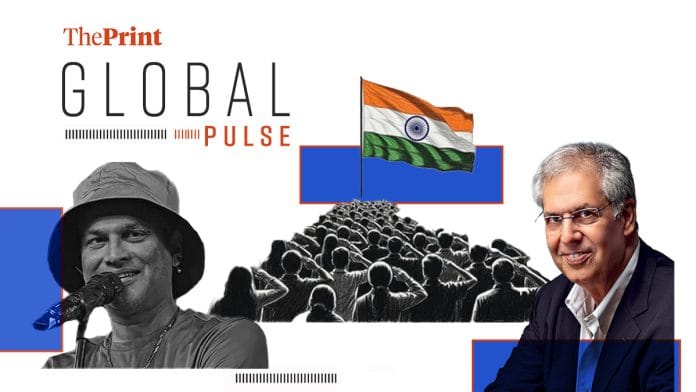New Delhi: The Tata Group is in the throes of a crisis. Two of “Narendra Modi’s top lieutenants” have held what is termed “an extraordinary meeting” with top executives from the company, report Chris Kay and Krishn Kaushik in Financial Times, referring to “boardroom divisions and repeated crises among its businesses”.
“The government’s move is ‘completely unprecedented’, said historian Mircea Raianu, author of a 2021 book on Tata Group, a business empire he said always had ‘strategic autonomy’ despite its role in crucial sectors, including arms manufacturing and semiconductors,” according to the report.
“Tata Group is important for India and important for the Indian state,” Raianu said. “What is extremely unusual is the internal intervention by the government in the governance of the group.”
The group has been marred by crisis after crisis. In June this year, a Tata-owned Air India aircraft crashed in Ahmedabad—leaving only a single survivor. The group’s carmaker Jaguar Land Rover is reeling from a cyber-attack which “put renewed pressure on its executives and sucked in TCS (Tata Consultancy Services), which manages JLR’s technology backbone”.
“Internal divisions within Tata’s leadership have burst into the open since Noel Tata, Ratan’s half-brother, took over as chair of Tata Trusts last year. Tata Trusts, made up of five philanthropic trusts, owns 66 per cent of the group’s parent company Tata Sons,” says the report. Ratan Tata had died last October.
“They are fighting multiple fires at the same time,” Umakanth Varottil, professor at the National University of Singapore, tells the FT. “A lot of the day-to-day issues are coming from the operational level… but there’s also stuff coming from the top with the disagreement between Noel Tata and some of the other trustees.”
In the Wall Street Journal, columnist Sadanand Dhume weighs in on what’s plaguing South Asia, where India, the largest country, has emerged as a noticeable exception to political unrest—three of its neighbours have seen uprisings in the last four years. Most recently, Nepal was plunged into turmoil following a youth-lead insurrection.
“What does all this mean for India, by far the largest country in the region? At first glance, the parallels with its neighbors seem obvious. In India, too, politicians’ children have a propensity to become fabulously wealthy. As in other South Asian nations, youth unemployment in India remains an explosive issue. And while Prime Minister Narendra Modi’s government has avoided major corruption scandals in its 11 years in power, it has done little to curb predatory officials who harass ordinary people,” he writes.
“Arguably it has emboldened them by enhancing their powers. In recent weeks, Indians have flooded social media with complaints about corrupt tax inspectors and customs officials.”
However, he adds, it is unlikely that India will go the way of Nepal.
“For one thing, democracy in India has deep roots. Apart from a brief hiatus in the mid-1970s, India has been democratic since independence in 1947. People are used to channeling their grievances through the ballot box, not by marching into the prime minister’s home. India is also far too large and effectively policed for a mob of protesters to topple the government,” he says.
“India is different,” Constantino Xavier, a fellow at the Center for Social and Economic Progress, a New Delhi think-tank, tells Dhume. “Politicians here still have the ability to listen.”
Meanwhile, in the BBC, Geeta Pandey and Abhishek Dey look at the phenomenon that was Zubeen Garg. The late Assamese singer, days before his death, told an interviewer that Assam would “shut down for seven days” when he died. “His remark almost proved prophetic,” says the report.
Questions surround the death of Zubeen last month. The first “true rockstar of Assam” is said to have drowned in Singapore where he was due to perform, and the Assam Police have received “at least 60 complaints”. “There is no clarity on what happened in his last moments,” says the report.
“The lyrics, the rhythm and the experiments of Garg generated vibrant waves in Assam’s music. He single-handedly filled up a void in a dark era that was also marked by immense economic backwardness,” Akhil Ranjan Datta, a professor of political science at Gauhati University tells the BBC.
But what is being displayed by Zubeen’s fans is more than just grief.
“Alongside the mass outpouring of grief and fans struggling to come to terms with the tragedy, there was also widespread anger, with his fans and admirers accusing authorities of insufficient transparency around the circumstances of his death and demanding justice,” says the report.
(Edited by Nida Fatima Siddiqui)
Also Read: Aadhaar gets Starmer’s stamp of approval & Panipat factory workers caught in textile waste trap






